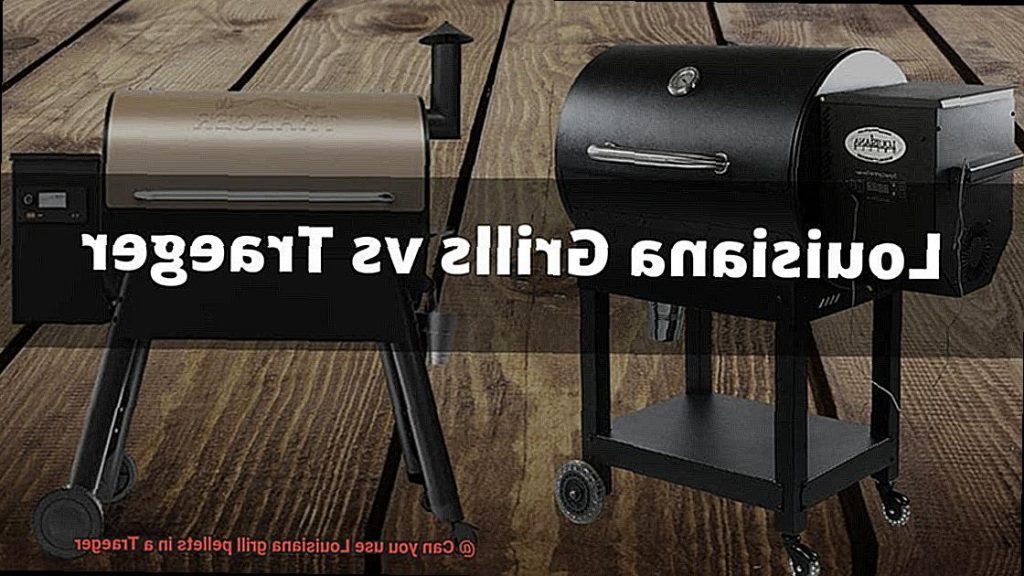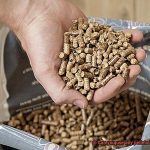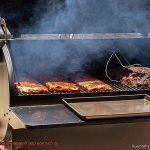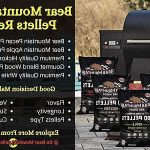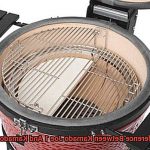Are you a BBQ fanatic like me who wants to achieve the best grilling experience possible? Then you know that the type of pellets you use can make or break your cooking. These pellets serve as the fuel source for pellet grills such as Traegers and Louisiana Grills. But here’s the million-dollar question: Can you use Louisiana grill pellets in a Traeger?
If you’ve found yourself in this dilemma, it’s time to get some answers. As a seasoned grill master, I’ve researched and experimented with various pellet types on different grills – including testing Louisiana grill pellets on a Traeger.
In this blog post, we’ll dive deep into the differences and similarities between these two types of pellets. We’ll explore factors such as pellet size, composition, and how they affect your cooking results. Plus, we’ll discuss compatibility issues and provide tips on how to maximize your grill’s potential.
So if you’re wondering whether Louisiana grill pellets are compatible with a Traeger, keep reading. You’re about to discover crucial information that could take your grill game to the next level.
Contents
What are Louisiana Grill Pellets?
If you’re passionate about grilling, then you know that the type of pellets used can make all the difference in the flavor and quality of your food. Louisiana Grill Pellets are a popular choice for grill enthusiasts who want to add depth and complexity to their grilled dishes. But what exactly are they?
Louisiana Grill Pellets are a type of wood pellet designed specifically for use with Louisiana Grills. They are made from 100% natural hardwoods, without any artificial flavors or additives. Unlike some other pellets on the market, the process of making these pellets involves compressing and shaping sawdust into small pellets without using any chemicals or binders. This results in pellets that burn cleanly and efficiently without leaving behind any harmful residue.
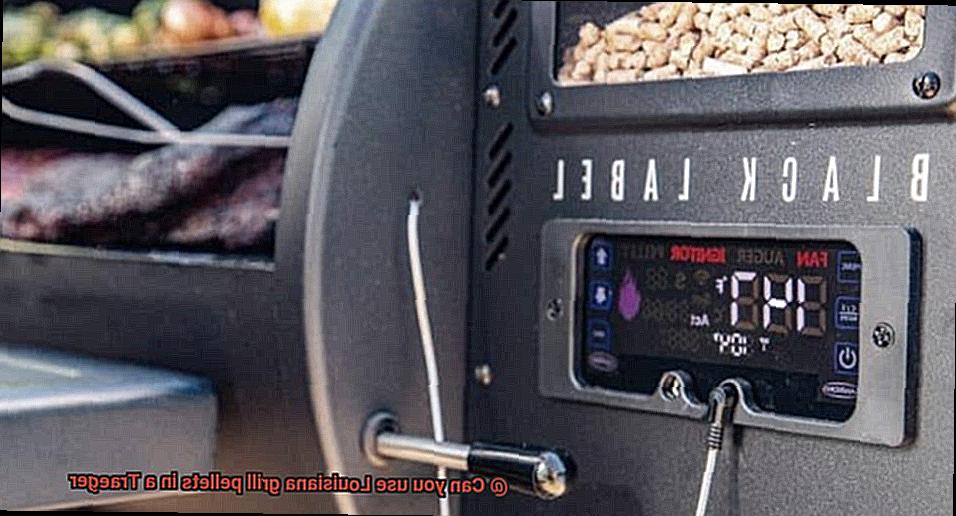
One unique feature of Louisiana Grill Pellets is their use of a blend of hardwoods, including oak, hickory, and maple. This blend ensures that the pellets produce a consistent flavor throughout the cooking process, allowing for a more complex and nuanced flavor compared to using just one type of wood. In addition to these three flavors, Louisiana Grill Pellets also come in mesquite, apple, pecan, and cherry.
Using Louisiana Grill Pellets in a Louisiana Grill is straightforward; simply load the pellets into the hopper and let the grill do the rest. However, these pellets are also compatible with a variety of pellet grills, including Traeger grills. It’s important to note that not all Traeger grills may work with these pellets due to differences in size and shape. It’s recommended to consult the manufacturer’s guidelines before using Louisiana Grill Pellets in a Traeger grill.
When choosing the best wood type for your grill, it’s important to consider what will best complement the food being grilled. For example, mesquite pellets are great for beef and pork, while applewood pellets work well with poultry and fish. It’s worth noting that using Louisiana Grill Pellets in a Traeger grill may void the warranty on the Traeger grill, so it’s important to weigh the potential risks and benefits before doing so.
Can You Use Louisiana Grill Pellets in a Traeger?
If you’re a Traeger grill aficionado but itching to try new flavors, you might wonder if Louisiana Grill pellets can be used in your Traeger. And the answer is yes. You can use Louisiana Grill pellets in a Traeger grill, but there are some important things to keep in mind.
Firstly, it’s essential to note that Traeger grills are specifically designed to work with Traeger pellets. Traeger pellets are made from 100% hardwood and are formulated to work best for Traeger grills. However, it’s not impossible to experiment with other brands like Louisiana Grill pellets.
Louisiana Grill pellets come in various blends of hardwoods, including hickory, mesquite, apple, and pecan. Although these pellets are not explicitly made for use in a Traeger grill, they can still be used without any major issues.
It’s important to note that using different types of pellets can affect the temperature and cooking time of your grill. Different woods burn at varying rates and produce different levels of heat. When using Louisiana Grill pellets, make sure to monitor the temperature closely to ensure that your food cooks evenly.
Another factor to consider is the flavor of the pellets. While Traeger pellets offer a consistent flavor profile, Louisiana Grill pellets may result in a slightly different taste. This could be an excellent opportunity to experiment with new flavors and add some variety to your grilling.
Potential Risks of Using Louisiana Grill Pellets in a Traeger
As a grill master, you’re always on the lookout for new ways to add flavor and excitement to your barbeque game. One option that’s been gaining popularity is using Louisiana grill pellets in a Traeger. However, before you dive in headfirst, it’s important to consider the potential risks involved.
First and foremost, using Louisiana grill pellets could put your Traeger grill at risk. Some users have reported issues with the auger system, which feeds pellets into the firepot. This could result in costly repairs or even render your grill unusable. So, it’s worth considering whether the risk is worth the reward.
Another risk to consider is the potential impact on the flavor of your food. Louisiana grill pellets are known for producing less smoke than other brands, and Traeger grills rely heavily on smoke to infuse flavor into food. This could result in a less flavorful end product that leaves you feeling underwhelmed. If you’re all about that smoky flavor, this could be a dealbreaker.
Lastly, there may be concerns about the quality of the wood used in Louisiana grill pellets. While Traeger grills require food-grade pellets made from 100% hardwood, Louisiana grill pellets are not marketed as such. This raises questions about potential health risks and could also affect the overall taste and quality of your food. If you’re a stickler for high-quality ingredients, this could be a red flag.
Different Types of Wood Used for Pellets
Pellets have revolutionized the world of grilling and smoking. These tiny, compressed pieces of wood are not only convenient and efficient but also add a unique flavor and aroma to your food. However, not all pellets are created equal. The type of wood used can significantly impact the flavor of your dish. Here are five sub-sections that explore the different types of wood used for pellets and how they can impact the taste of your food.
Oak Pellets
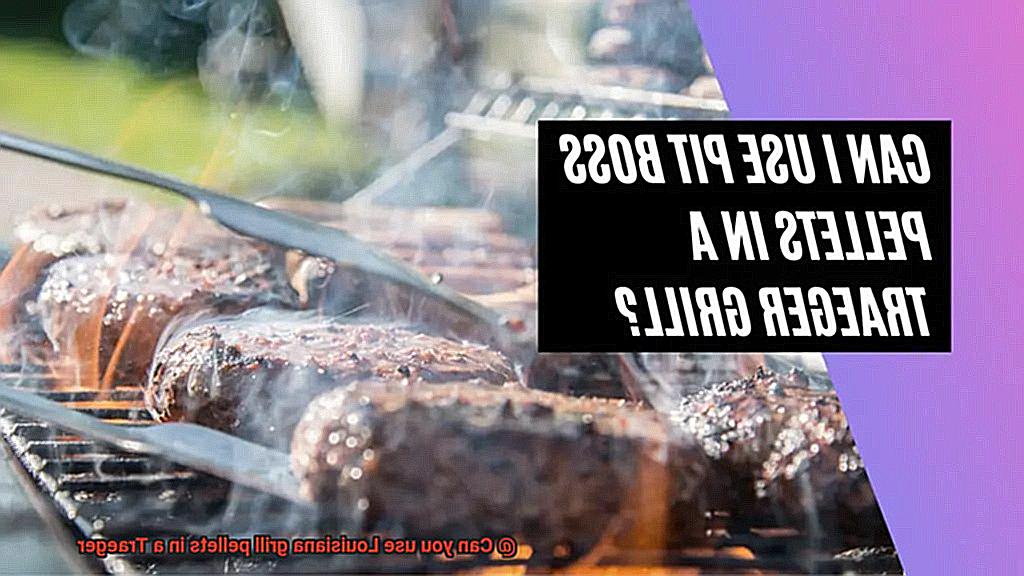
Oak pellets are a popular choice for their mild, smoky flavor that works well with almost any type of meat. They provide a consistent burn that produces a beautiful smoke flavor. The subtle earthy taste of oak pellets is perfect for those who prefer a low-key taste in their grilled food. Oak pellets work best when paired with lighter meats such as chicken or fish as they don’t overpower the dish’s natural taste.
Hickory Pellets
Hickory pellets have a strong, bold flavor that pairs well with beef and pork. They offer an intense, smoky taste that is perfect for those who like their grilled food to have a bit of a kick. However, it’s important to use hickory pellets in moderation as they can quickly overpower the dish’s natural flavors. Hickory pellets work best when paired with red meats like beef or game meats.
Mesquite Pellets
Mesquite pellets offer an intense, smoky flavor that is perfect for beef and game meats. They are a popular choice in Texas-style barbecue due to their bold, distinctive taste. Mesquite pellets should be used sparingly as they can easily become overwhelming. Unlike hickory pellets, mesquite works best with dark meats like beef or wild game.
Fruitwood Pellets
Fruitwood pellets like apple and cherry are known for their sweet and fruity flavor that complements poultry, pork, and fish. Applewood pellets provide a sweet, mild smoky flavor while cherry pellets offer a slightly sweeter taste than applewood. They add a unique sweetness to your meat that is perfect for those who love fruit-flavored dishes. Fruitwood pellets work best when paired with lighter meats like chicken or fish.
Pecan Pellets
Pecan pellets offer a nutty and sweet flavor that works well with pork and chicken. They provide a subtle smoky taste that is not overpowering but adds a lovely sweetness to your meat. Pecan pellets are perfect for those who like their grilled food to have a nutty flavor. These pellets work best with lighter meats like chicken or pork.
Choosing the Right Wood for Your Food
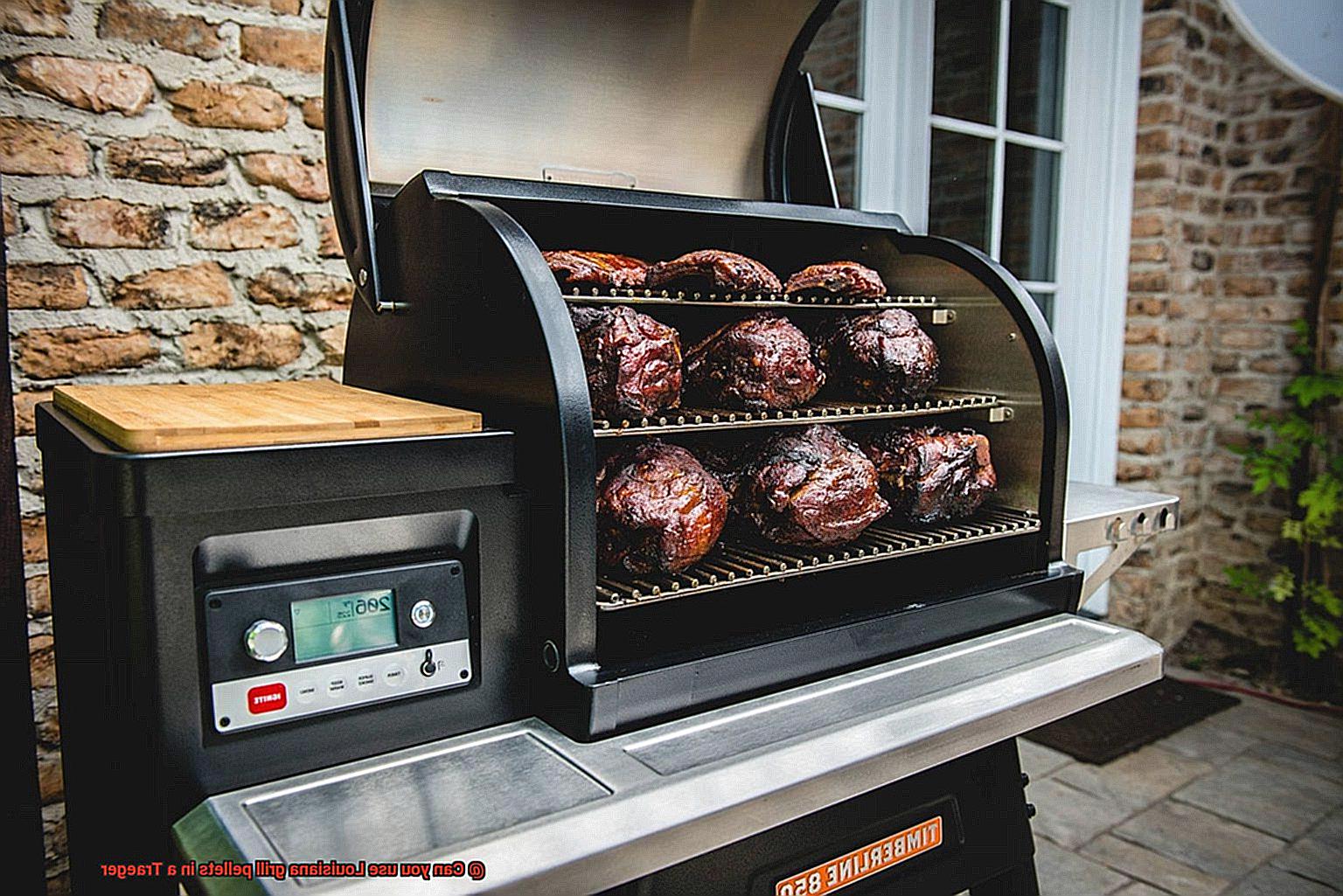
Imagine a warm summer day, the sun is shining, and you’re ready to grill up a delicious feast on your Traeger. But before you start, have you considered the type of wood pellets you’ll be using? Choosing the right wood for your food can transform an ordinary meal into a culinary masterpiece.
One brand of wood pellets that is highly respected amongst grill enthusiasts is Louisiana Grills. Their pellets come in a variety of flavors, including hickory, mesquite, apple, cherry, and pecan, each offering a unique taste experience that can enhance your grilled dishes. And the big question on everyone’s mind: Can Louisiana Grill pellets be used in a Traeger grill? The answer is yes.
When selecting wood pellets for your Traeger grill, it’s important to consider what type of food you’ll be cooking. Different types of wood impart different flavors that can complement your dish perfectly. For instance:
- Hickory and mesquite pellets offer a strong smoky flavor that pairs well with beef and pork.
- Apple and cherry pellets offer a slightly sweet and fruity taste that works well with poultry and fish.
- Pecan pellets offer a nutty flavor that pairs well with almost any type of meat.
It’s essential to note that different types of wood burn at varying temperatures and rates. Hardwoods like oak and hickory burn hotter and slower than softwoods like pine and spruce. This means that you may need to adjust the temperature and cooking time according to the type of wood you’re using.
Considerations When Using Louisiana Grill Pellets in a Traeger
While it’s possible, there are a few considerations to keep in mind before you fire up the grill.
First off, it’s essential to understand that Louisiana grill pellets are designed specifically for use with Louisiana Grills. However, some Traeger users have reported success when using these pellets in their grills. But what should you consider before diving in?
One crucial factor to keep in mind is the type of wood used in the pellets. Louisiana grill pellets are a blend of different woods, such as hickory, maple, and oak. This blend can offer a unique and flavorful taste to your food. However, it may not be the same as using pure hickory or maple pellets in your Traeger. So, it’s essential to consider the specific flavor profile you want to achieve before using these pellets.
Another consideration is the quality of the pellets themselves. Some users have reported issues with excessive ash or clogs in their Traeger grills when using these pellets. To avoid this, make sure you’re using high-quality pellets that don’t contain any impurities that could cause these issues.
Lastly, it’s important to note that using Louisiana grill pellets in your Traeger may void your warranty. Traeger recommends only using their branded pellets to ensure optimal performance and safety.
Benefits of Using Louisiana Grill Pellets in a Traeger
If so, it’s time to switch things up and try Louisiana Grill pellets in your Traeger. Not only do these pellets offer a variety of unique and delicious flavors, but they also provide high-quality construction, affordability, and consistent results.
Let’s start with the flavors. Louisiana Grills uses 100% natural hardwood to create their pellets, offering a range of flavors such as mesquite, hickory, apple, cherry, and pecan. With so many options to choose from, you can experiment with new tastes and find the perfect match for your favorite dishes. The result? Mouth-watering meals that will impress your guests.
But it’s not just about the taste. The construction of these pellets is top-notch too. Made from premium hardwood sawdust without any fillers or binding agents, they burn cleanly and produce less ash than other brands. This means you can spend more time enjoying your perfectly cooked food and less time cleaning up after your grill sessions.
And let’s talk affordability. Louisiana Grill pellets are priced competitively compared to other brands on the market. With their wide range of flavors, you can enjoy restaurant-quality food at home without breaking the bank.
Finally, using these pellets in your Traeger ensures consistent results every time you grill. They’re designed to burn at a consistent rate and temperature, which means your food will cook evenly and come out perfectly every time. Whether you’re a seasoned pro or just starting out, this consistency can help take your grilling skills to the next level.
oXXiOa_gIFM” >
Conclusion
In summary, the answer to whether you can use Louisiana grill pellets in a Traeger is yes, but with some caveats. These pellets are made from all-natural hardwoods and offer a blend of oak, hickory, and maple that consistently infuses your food with flavor. While they are designed for use with Louisiana Grills, they can also be used with Traeger grills.
However, Traeger grills are optimized for use with their own brand of 100% hardwood pellets that work in tandem with the grill’s technology to produce optimal temperature and cooking times. Using different types of pellets may alter these settings and lead to variations in taste.
If you do decide to experiment with Louisiana grill pellets in your Traeger, it’s important to closely monitor the temperature and cooking times throughout the process. This will help ensure that your food is cooked safely and evenly.
While there are benefits to using these pellets such as affordability and consistent results, there are also potential drawbacks such as voiding your warranty or impacting the taste of your food. Ultimately, it’s up to you to weigh these factors before making a decision.
In conclusion, using Louisiana grill pellets in a Traeger is possible but requires careful consideration.

